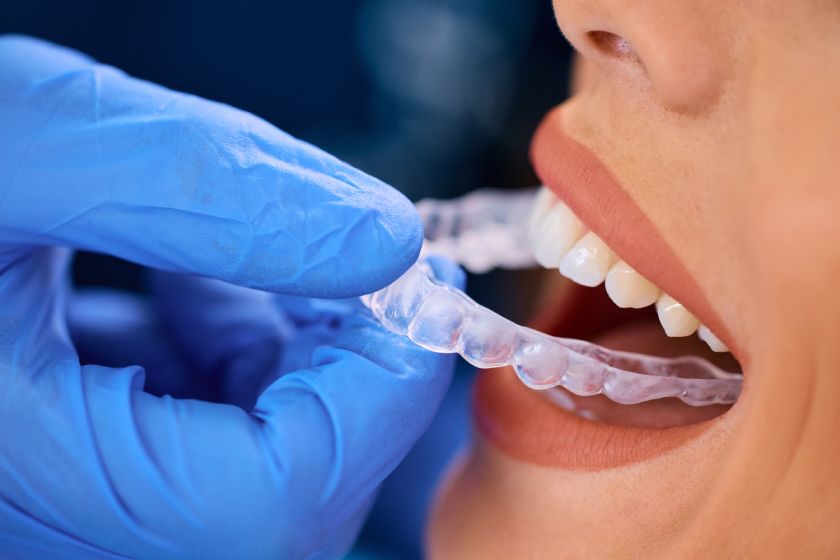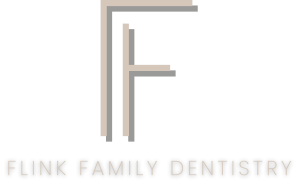1930 E. Rosemeade Pkwy #103 Carrollton, TX 75007


An overbite is one of the most common dental misalignments, often leading people to wonder: can Invisalign fix an overbite? This clear aligner treatment has become a popular choice for those seeking discreet and effective orthodontic solutions.
In this blog, we’ll explore how Invisalign works, whether it can truly correct an overbite, who qualifies for this treatment, and what to expect during the process.
What Is an Overbite?
An overbite, which is often called a deep bite, takes place when the upper front teeth cover the lower front teeth more than they should when your mouth is shut. A minor overbite is totally normal, but if it’s more pronounced, it can cause both functional difficulties and cosmetic concerns.
- Jaw pain
- Speech difficulties
- Excessive wear on lower teeth
- Increased risk of tooth decay or gum issues
- Self-consciousness about appearance
Overbites can be caused by genetics, childhood habits like thumb sucking, or jaw development issues. Fortunately, orthodontic treatment options like Invisalign offer a promising solution.
Can Invisalign Fix an Overbite?
An overbite, sometimes referred to as a deep bite, happens when the upper front teeth sit over the lower front teeth more than they ought to when your mouth is closed. While a slight overbite is quite normal, a more noticeable one can lead to both functional challenges and aesthetic worries. Through controlled pressure and consistent wear, the aligners can address not only crooked or spaced teeth but also bite alignment issues, including overbites.
The effectiveness of Invisalign in correcting an overbite relies on a few key factors, including:
- The severity of the overbite
- Patient compliance with wearing aligners (typically 20–22 hours per day)
- The experience of the dental provider
- Whether jaw movement or just teeth repositioning is required
Invisalign is a great option for addressing mild to moderate overbites, often leading to impressive outcomes. In more complex cases, additional tools such as elastics (small rubber bands attached to the aligners) may be used to guide the jaw into alignment.
How Does Invisalign Treat an Overbite?
Invisalign treatment follows a step-by-step digital plan. Here’s how it works for patients with overbites:
1. Consultation and Assessment
Your dentist or orthodontist will evaluate your bite using 3D imaging, photographs, and X-rays. This helps determine whether Invisalign is a suitable treatment for your overbite.
2. Customized Treatment Plan
Using advanced software, a customized digital plan maps out the movement of your teeth over time. You’ll be able to see a preview of your expected results.
3. Series of Clear Aligners
You’ll be given a series of aligners to wear in a specific order. Each set is a little different and is meant to gently move your teeth and enhance your bite alignment over time.
4. Use of Attachments and Elastics (If Needed)
In cases of overbite correction, your provider may add attachments—small, tooth-colored bumps—to your teeth to help the aligners grip better. Elastics might be used to shift the jaw more effectively.
5. Monitoring Progress
Expect to have check-ups every 6 to 8 weeks. These visits are important to keep your treatment on track and to get your next sets of aligners.
How Long Does It Take to Fix an Overbite with Invisalign?
The time it takes to fix an overbite with Invisalign really depends on how severe the overbite is and how committed the patient is to wearing their aligners. On average, treatment can take:
- 6 to 12 months for mild overbites
- 12 to 24 months for moderate to severe overbites
Some cases may take longer, particularly if jaw repositioning is involved. Following your provider’s instructions and wearing your aligners consistently can speed up progress.
Who Is a Good Candidate for Invisalign?
Invisalign is ideal for teens and adults with mild to moderate orthodontic concerns, including overbites. You may be a suitable candidate if you:
- Have a treatable overbite
- Are committed to wearing aligners as instructed
- Prefer a discreet alternative to metal braces
- Don’t have severe jaw discrepancies that may require surgical correction
A qualified dental professional will assess your condition to determine if Invisalign is the right solution for your overbite.
Benefits of Using Invisalign for Overbite Correction
Choosing Invisalign for overbite treatment offers several advantages over traditional braces:
- Discreet Appearance: Clear aligners are virtually invisible
- Removability: You can take them out for eating, brushing, and flossing
- Comfort: No metal brackets or wires to irritate the mouth
- Improved Oral Hygiene: Easier to maintain healthy teeth and gums
- Predictable Outcomes: Digital planning helps visualize the end result
Limitations and When Invisalign Might Not Work
While Invisalign can fix an overbite in most cases, it may not be suitable for:
- Severe skeletal overbites needing jaw surgery
- Patients unwilling or unable to commit to 20+ hours/day wear
- Individuals with certain dental restorations or missing teeth
In such cases, your dentist might recommend a different treatment, such as traditional braces or surgical orthodontics.
So, can Invisalign fix an overbite? For many people, the answer is yes. Invisalign offers a modern, comfortable, and effective way to correct bite issues without the need for metal braces. If you’re experiencing discomfort, aesthetic concerns, or functional problems due to an overbite, consulting with an experienced Invisalign provider can help you decide the best course of action.Clear aligner treatment continues to evolve, and with proper planning and patient cooperation, it’s possible to achieve a healthier bite and a more confident smile. Contact your Flink Family Dentistry to get an exclusive Invisalign treatment in Carrollton, Texas.

